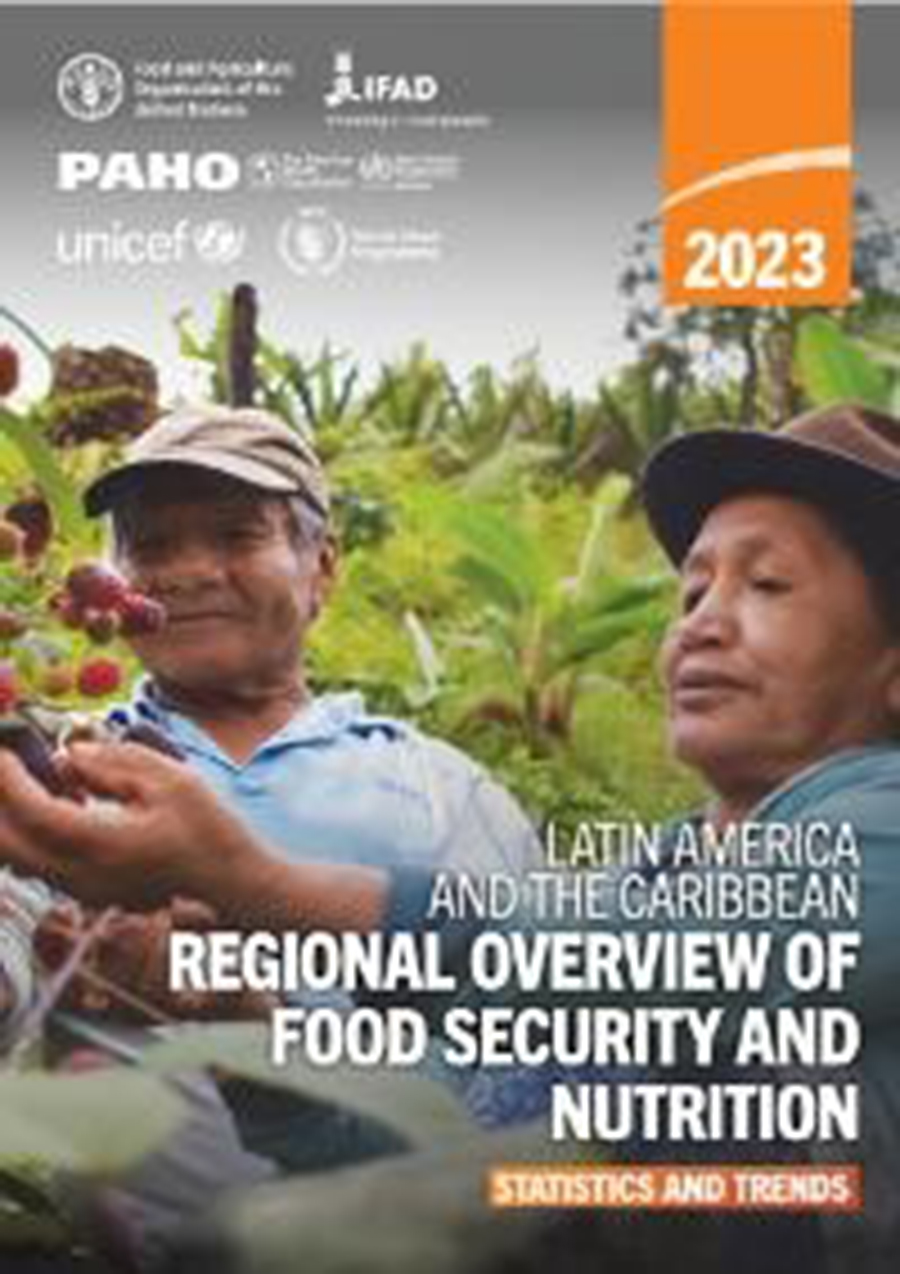Guyana is among the countries in South America where a high prevalence of low birthweight persists, according to a Food and Agriculture Organization (FAO) report.
In its recently published 2023 report on the Regional Overview of Food Security and Nutrition in Latin America and the Caribbean, the FAO stated that as a region, Latin America and the Caribbean has a lower prevalence of low birthweight than the world estimate.
Low birthweight is defined by the World Health Organization (WHO) as weight at birth lower than 2.5 kg (5.5 lb) and can be caused by intrauterine growth restriction, prematurity or both.
 According to statistics presented in the report, in 2020, this prevalence of low birthweight was 9.6% compared to the world estimate of 14.7%. It noted that the prevalence at a global level was reduced by 1.9 percentage points in the period 2000–2020, while at the regional level it increased slightly by 0.3 percent.
According to statistics presented in the report, in 2020, this prevalence of low birthweight was 9.6% compared to the world estimate of 14.7%. It noted that the prevalence at a global level was reduced by 1.9 percentage points in the period 2000–2020, while at the regional level it increased slightly by 0.3 percent.
The report revealed that when analysed by subregion, the Caribbean showed a prevalence of low birthweight of 11.7%, followed by Mesoamerica’s 10.9%, and finally South America’s 8.8%; meaning that all three subregions are below the world estimate.
According to the report, in examining data available for the prevalence of low birthweight in countries of the region, Guyana was among the countries with the highest prevalence.
It said that in 2020, Guyana recorded a 17.2% prevalence of low birthweight. That was followed by Suriname’s 16.5%, and Saint Lucia and Trinidad and Tobago both with 16.3%.
At the other end of the spectrum are Chile with 6.8% prevalence, Cuba with 7.1% and Argentina, 7.4%.
In examining the period 2000–2020, it was highlighted that Peru showed the greatest improvement in this indicator, with a reduction of 2.7 percentage points, followed by Nicaragua’s 1.3 points and Panama and Jamaica with a decrease of 1.2 percentage points each.
The FAO report noted that by contrast, the countries that showed the largest increase for the same period were the Dominican Republic (3.2 percentage points), Suriname (2.3 percentage points) and Saint Lucia (1.9 percentage points).
It was revealed that the prevalence of low birthweight was higher in 2020 compared to 2000 in the majority of countries in the region.
Only eight countries showed an improvement in this period: the Plurinational State of Bolivia, Ecuador, El Salvador, Jamaica, Nicaragua, Panama, Peru and Uruguay.
Sourcing the WHO, the report noted that low birth-rate constitutes a significant public health problem globally and is associated with a range of both short and long-term consequences such as foetal and neonatal mortality and morbidity, impaired growth and cognitive development, as well as an increased risk of non-communicable diseases later in life.
The report stated that the region is facing a complex scenario, due to a successive series of crises: the COVID-19 pandemic, inequalities and persistent levels of poverty, the climate crisis, and the effects of the conflict in Ukraine.
These factors, it said, have contributed to rising food prices and food inflation, threatening the functioning, efficiency and resilience of agrifood systems. Thus, hunger and malnutrition remain two of the main challenges for the region.
The report noted that in this context, regional cooperation and integration, such as the CELAC FSN Plan, play an important role in enabling the implementation and increasing the impact of agricultural and food policies, plans, legislation and programmes.
It added that public and private financing and investments in food security and nutrition contribute greatly to addressing these challenges while noting that multilateralism and multisectoral coordination are also important to enable the countries of the region to accelerate the achievement of the 2030 Agenda for Sustainable Development.
The report said that the capacity of Latin America and the Caribbean as a food-producing region “is, and will continue to be, an essential pillar on this path and for global food security.”
Against this background, it said, it is hoped that the report will be an important contribution to placing the eradication of hunger and the reduction of all forms of malnutrition at the centre of investments and public policies in the region.
“We will not be able to address inequalities in Latin America and the Caribbean, or move towards a more just region, without guaranteeing food security and nutrition. Let’s continue working together to leave no one behind,” the FAO report said.





